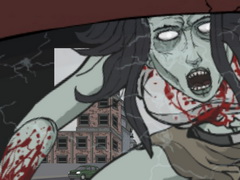

We no longer know where to dig."Ĭorrection: December 3, 2005, Saturday An article on Oct. "We are asking that it be declared a cemetery. "Panabáj will no longer exist," said Mayor Esquina said in an interview with The Associated Press. The remaining bodies, they said, had been underground so long, and were probably so badly decomposed, that they would be hard to find and even harder to recognize. Local authorities announced that they would give up on finding any more and end the digging. It was another child, barely old enough to walk. But a tree trunk, so heavy it took 10 men to lift it, fell on top of them.īy Saturday, however, the rescue efforts were bearing little fruit. The mother was trying to run from the mudslide, one of the rescue workers said. One woman, they said, was found with a 2-year-old in her arms, and a baby in a shawl on her back. Most people were asleep, rescue workers said, when the mudslide hit about 3 a.m. So far, they had recovered 72 bodies, mostly women and children. There was only one power saw in the village, and its owner ran from one spot to another to help rescue teams cut apart heavy tree trunks. Hundreds of them climbed up onto the mud and began digging for the dead with little more than shovels and hoes. Still, the people of Panabáj were clearly overwhelmed by their task. "The army left very bad memories," said Pedro Mendoza, the leader of a local security committee. In 1990, soldiers reportedly killed at least nine peasant farmers in Panabáj whom the soldiers had suspected of being guerrillas. But others said they had refused government help because the village harbored deep resentment against the government, a lingering legacy of this country's brutal civil war. Some residents said Saturday that the government had abandoned them. The impoverished people of Panabáj, a village of tiny houses made from reeds and tin that has been buried since Tuesday by at least 20 feet of mud, seemed to have been left almost entirely to save themselves, except for a half-dozen British tourists who joined the rescue effort. "In the high plateau we are still in real emergency, still experiencing successive damages, still experiencing landslides on some of the mountains." "The magnitude of the disaster is enormous," Mr. Stein said, had been reported on hundreds of mountains and had damaged nearly 2,500 miles of highway, leaving most of the entire northern province of San Marcos cut off from aid.Īn American helicopter unit from Joint Task Force Bravo at Soto Cano Air Base in Honduras made two attempts on Sunday to fly to San Marcos through the cloud-covered skies, and rescue at least 30 children in need of medical attention.īut low cloud cover and a continuing downpour stopped that and numerous other rescue efforts. Guatemalan authorities reported that the death toll went up again on Sunday, to 652 people from the 508 that had been reported Saturday.Ībout 130,000 had been left homeless in Guatemala, authorities said, and three million more had been left without electricity, water and other basic services. Vice President Eduardo Stein described the damage as "colossal" in a television interview on Sunday.

In Guatemala, however, Stan, a much weaker Category 1 hurricane that swept across the region with 80 m.p.h.

Newspapers across Central America described the storm as the worst natural disaster to hit the region since Hurricane Mitch, a Category 5 storm with winds of up to 180 miles per hour that killed about 9,000 people in 1998.

The rains, which started gently last weekend and then turned torrential, caused a trail of death and destruction from southern Mexico - where an estimated 20 people were killed, 70 rivers overran their banks, 30 bridges fell and more than 150,000 people were left homeless - to El Salvador, where an estimated 71 people died and about 65,000 were left homeless. Mayor Diego Esquina of Santiago Atitlán, the nearby municipality that oversees the village, estimated that as many as 400 people lay dead beneath the mudslide, making this one of the areas hardest hit by the rainstorms spawned last week by Hurricane Stan.


 0 kommentar(er)
0 kommentar(er)
